I bought these sheets of stamps at the post office museum shop high up in Skytree tower in Tokyo in 2018.
These pages will go into my ‘World Travels’ stamp album.

a weblog of whereabouts & interests, since 2010


I learned today that South African Afrikaans poet, short story writer, and critic Johann de Lange had passed away on Thursday.
I made an attempt below to translate a poem from his debut collection of poetry that appeared in 1982. It was titled ‘Akwarelle van die Dors’ (‘Watercolors of the Thirst’) and he was awarded the Ingrid Jonker prize in 1983, the first of many prizes awarded for his writing.
Aardlief
Eendag word ek wel weer joune, oerbeminde:
word my hande en my oë jòù hande en jòù oë,
gee ek die handvol geleende stof aan jou terug,
ou selfsugtig, word ek joune van kop tot tone.
– Johann de Lange, uit sy debuutbundel ‘Akwarelle van Die Dors’ (1982)
Earthly love
Surely one day, will I become yours again, primal beloved:
will my hands and my eyes become your hands and your eyes,
will I return the handful of borrowed dust to you,
old selfish one, becoming yours from head to toe.
– A rough translation into English
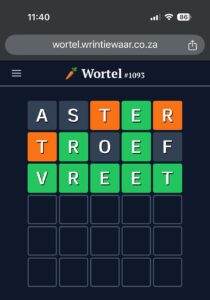
How strange, I thought this morning, after completing my Afrikaans Wordle, that there really is no English word for VREET.
In Afrikaans, humans ‘eet’ (eat) and animals ‘vreet’ (eat).
Example:
Ek eet die appel. (I eat the apple).
Die vark vreet die appel. (The pig eats the apple).
If someone eats voraciously or sloppily, you might use the ‘animal’ word for eat to ask the person:
‘Wat vreet jy?’ (What are you pigging out on?),
meaning the person eats like an animal/ a pig.
A few weeks ago Lufthansa cancelled the direct Frankfurt to Cape Town flight I had reserved. They rebooked all of us on a short hop to Munich, to catch the Munich to Cape Town flight from there.
Pictures:
I ran into several more billboard pictures of “Venus” in Terminal A. Would you like to see all of them? (Of course you do. The “merivaglia” in the slogan “Open to merivaglia” is an Italian word that means “a wonder” or “beauty”).
That’s a Boeing 787-9 at the gate at Terminal A that took us to Munich. It’s a 45-minute flight due east.
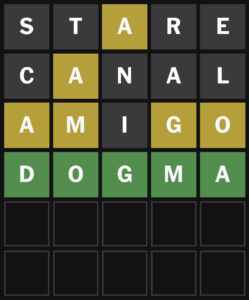
I liked the Wordle word of today.
As the saying goes: “My karma ran over your dogma”.
(My actions trumped your rigid beliefs).
kar·ma
/ˈkärmə/
noun
(in Hinduism and Buddhism) the sum of a person’s actions in this and previous states of existence, viewed as deciding their fate in future existences.
“a buddha is believed to have completely purified his karma”
informal use
destiny or fate, following as effect from cause.
“there’s something highly satisfying when karma strikes”
dog·ma
/ˈdôɡmə/
noun
a principle or set of principles laid down by an authority as incontrovertibly true.”the rejection of political dogma”
[Definitions from Cambridge English Dictionary online].

Stamps (from South Africa) that I had bought in March (on Ebay) from a seller in China, showed up in my mailbox today.

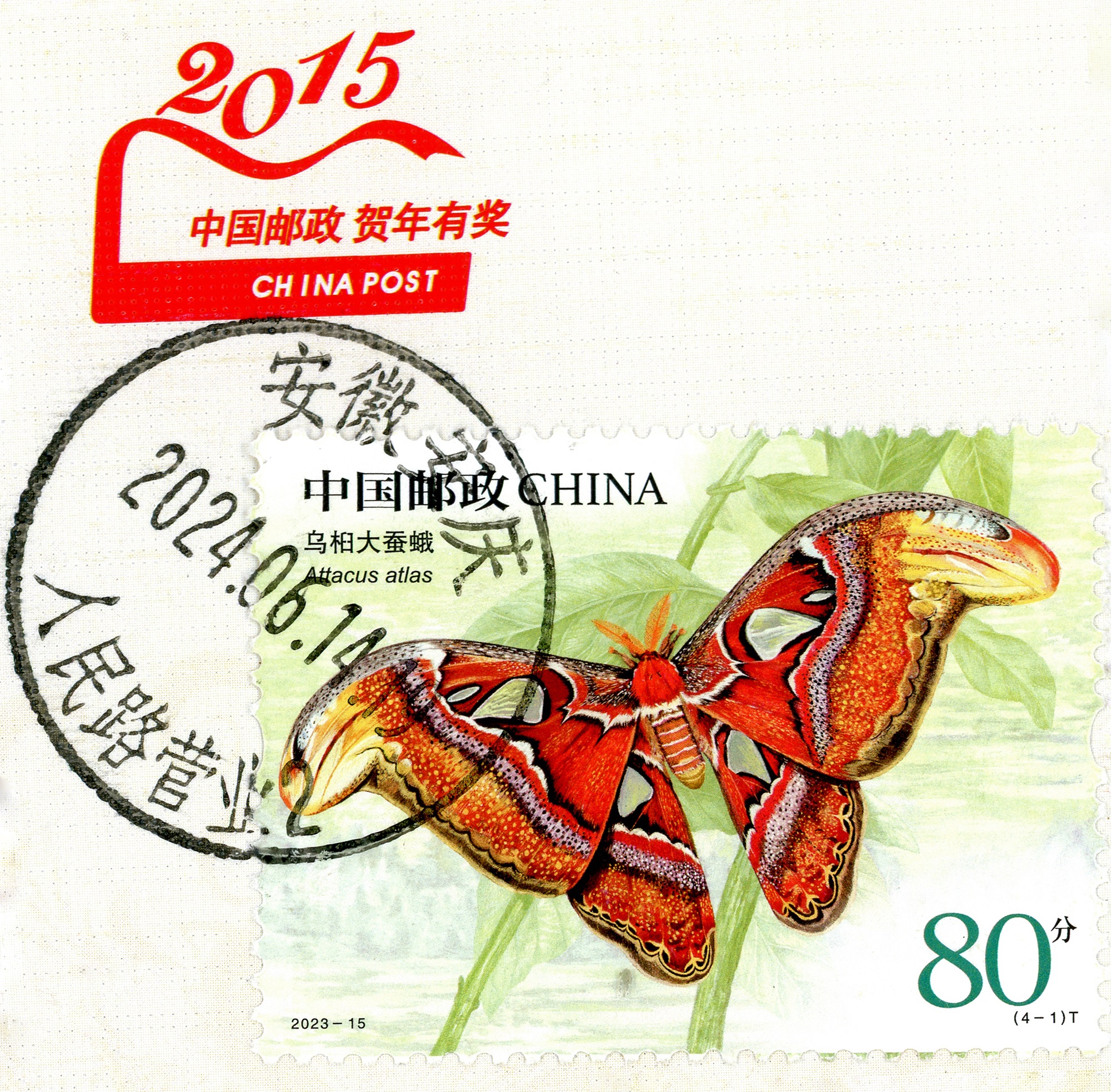
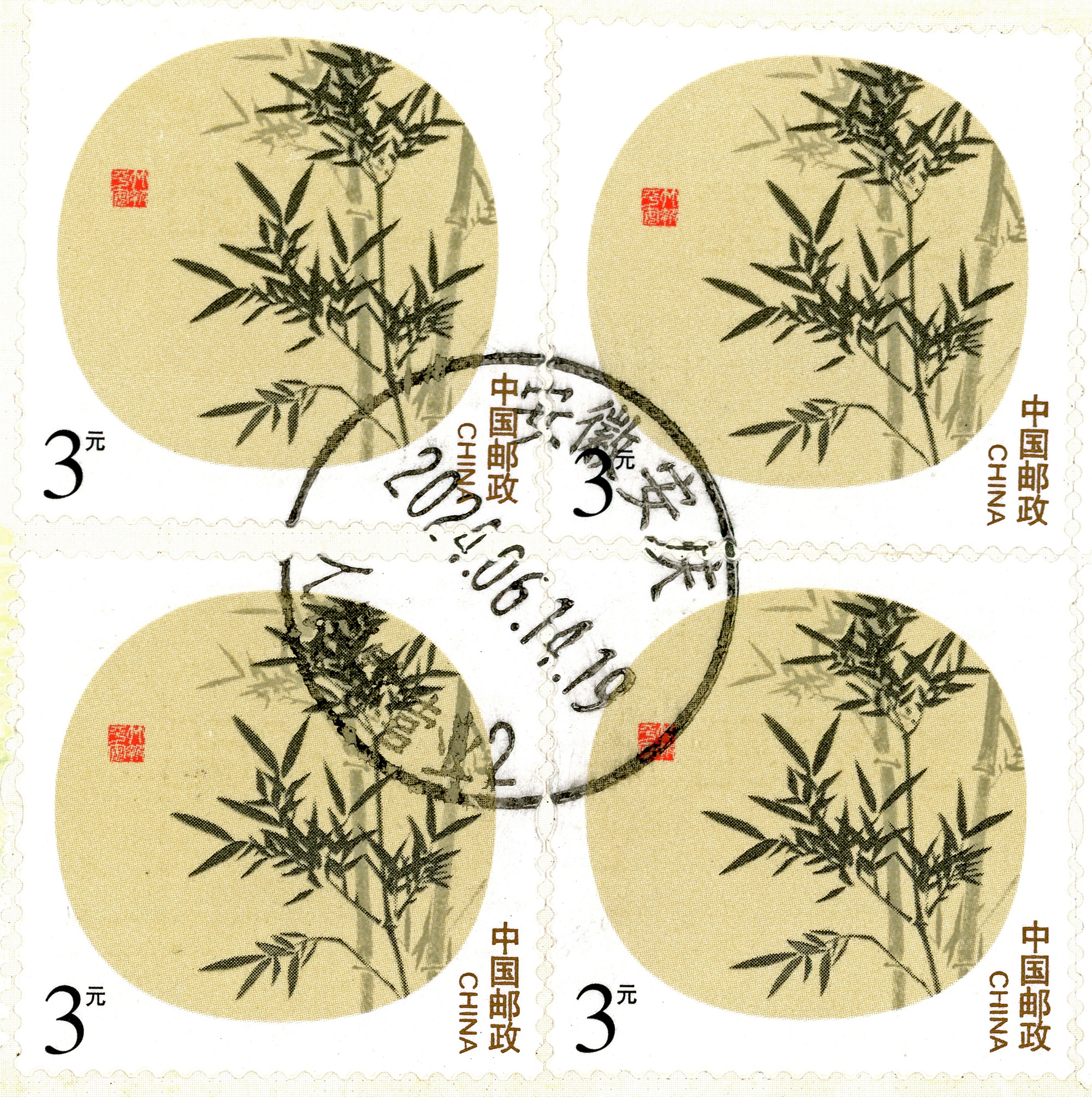
Hey! Amazon opened its online doors in South Africa today.
The Books section has a language filter— necessary for a country with 11 official languages.
I searched for Afrikaans books, and specifically for the beloved Afrikaans poet and author C.J. Langenhoven (1873-1932).
I did find the book Loeloeraai, but right now it is out of stock on amazon.co.za.
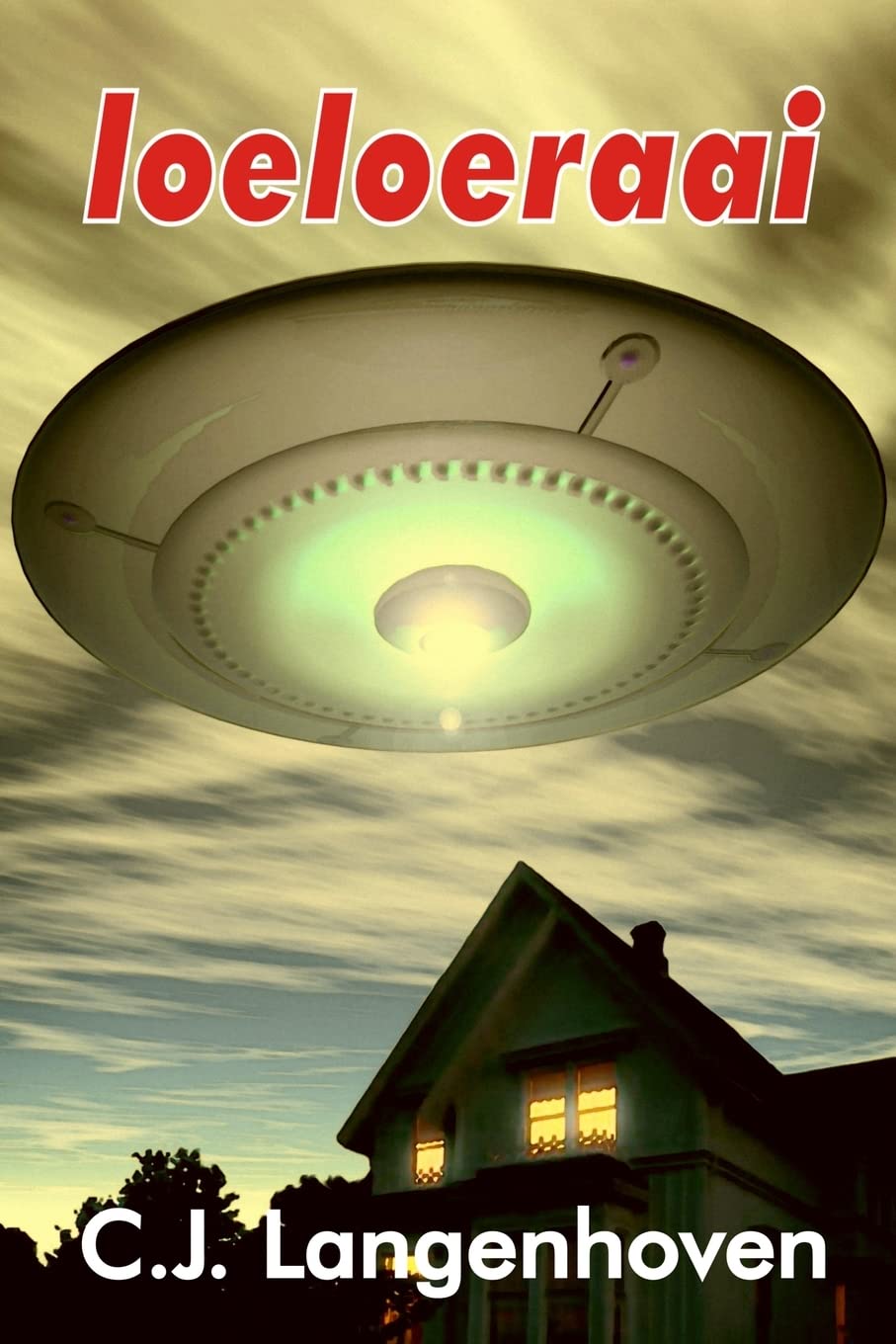
Happy Valentine’s Day— for those that indulge in it.
Here is a cute cartoon from Stern magazine, and from the latest— and 40th— Asterix cartoon book series.
The series first appeared in the Franco-Belgian comic magazine Pilote on 29 October 1959.

Impedimenta: Fällt etwas dir was auf?
Impedimenta: Do you notice anything?
Chief: Du hast überall muskelkater, weil du das bankett für heute abend vorbereitet hat?
Chief: You have sore muscles all over, because you prepared the banquet for tonight?
Impedimenta: Nein! Ich have mir ein neues Kleid gekauft!
Impedimenta: No! I bought myself a new dress!
Chief: Ach so, ja …
Chief: Oh yes, right …

The Norwegian Sun made it into the port town of Salaverry at seven this morning (first picture).
There was a shuttle bus out to the main plaza in Salaverry (third picture), and from there my party of three were left to our own devices to find transport to the city of Trujillo (pop. about 1 million).
This whole area nearby is the site of the great prehistoric Moche and Chimu cultures before the Inca conquest and subsequent expansion.
We solicited a taxi for the 25-minute drive into Trujillo and all went well until we paid the driver in US dollars. Best we could tell that he was not happy with the quality of the $20 and two $5 dollar bills. The US dollars have to be changed into Peruvian Sol by moneychangers for him. Anyway, we gave him the newest dollar bills we had, and that solved the problem.
We used Uber to get back. That was cheaper and worked a lot better: no exchange of paper money needed.
Look for the Plaza de Armas of Trujillo in the pictures below, with the Freedom Monument and the Cathedral of Trujillo nearby.
The beautiful building of UNT Archeology Museum and pictures of just a few of the displays inside, follow after that.
Here is Eric Margolis writing for the Japan Times (just the introduction of a long article):
You may have learned that “I” is 私 (watashi). And while this is a handy all-around term to use when referring to yourself, a 2019 survey showed that over 30% of Japanese women and around 70% of Japanese men don’t regularly use it.
To make things even more confusing, people do or don’t use 私 entirely depending on the situation. While 80% of women in their 50s expected to use 私 to address colleagues or acquaintances their own age, just 30% expected to use it for people they met for the first time. Meanwhile, 60% of men in their 50s expected to use it when meeting a young person for the first time. But that percentage dropped to 40% of the time when they were meeting someone their own age.
Japanese dictionaries and resources list over 30 different words for just one in English: “I”. Every word expresses different nuances about how the speaker views themselves and what their relationship is to the person they’re speaking with. There’s わたし (watashi), わたくし (watakushi), あたし (atashi), 僕 (boku), 吾輩 (wagahai), 俺 (ore), うち (uchi), 儂 (washi), 麿 (maro) and 自分 (jibun), just to name a few. So how to know which one to use?
P.S. I would have loved to be in Japan right now, at the tennis courts watching some Japan Open tennis action.

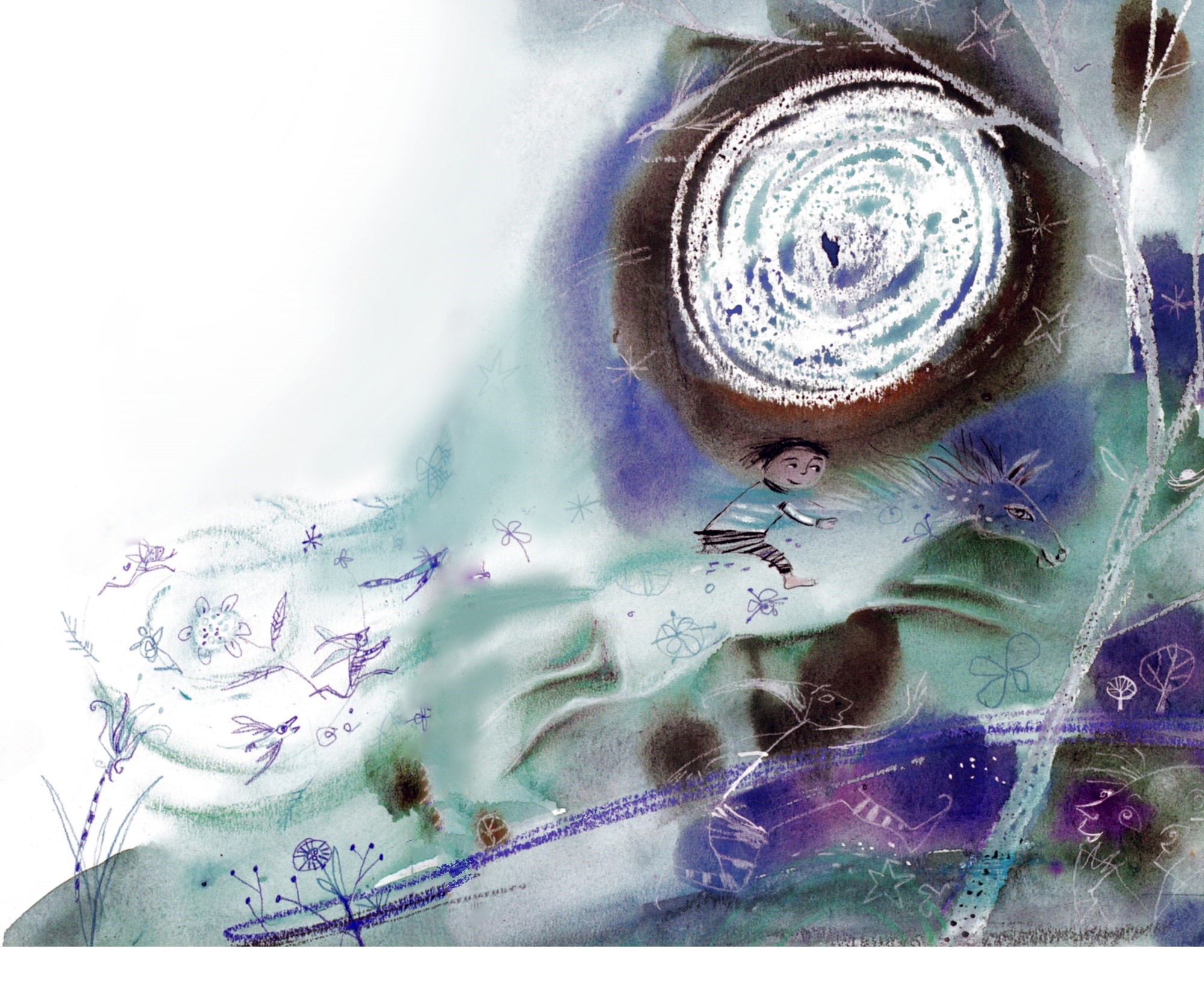 Toe Vader slaap, toe Moeder droom,
Toe Vader slaap, toe Moeder droom,
is ek uit by die hek langs die appelboom.
En ek ry op die spierwit perd se rug
bo-oor die heinings en bo-oor die brug.
En niemand weet dat ek daar was
met elwekinders op die gras.
As Father slept, as Mother dreamed,
I slipped out the gate by the apple tree.
I rode on the back of the snow-white horse
over the hedge and over the gorge.
And on no one ever, will it dawn
that I’d been there with elven children, on the lawn.
– From ‘Die Spree met Foete’, reworkings of Annie M.G. Schmidt’s Dutch verses into Afrikaans, 2002.
Verses by Piet Grobler and artwork by Philip de Vos.
The rough translation into English is my own.
August is here, with a full moon tonight.
There are two full moons this August, both of which are supermoons—
The Sturgeon Moon that reaches its peak today, August 1st;
The Blue Moon that occurs on Wednesday, August 30th.
I’m just going to play Wordle and Scrabble and Duolingo and ignore the news until the debt-ceiling hostage situation at the Capitol is resolved.
(The Republicans with their fake outrage over spending seem determined to crash the world economy).
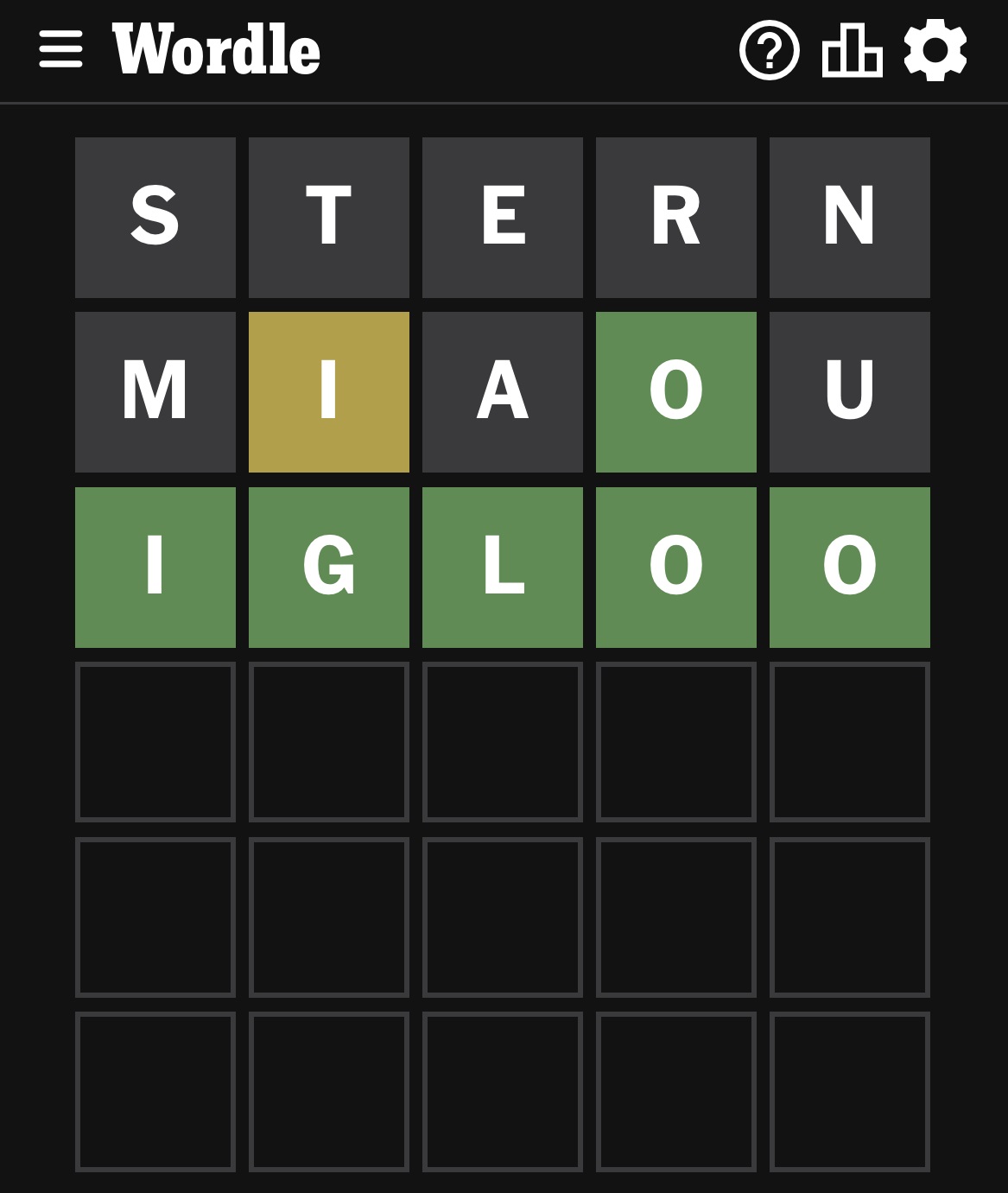
Ready to learn a few new words in the English language?
Take a quick look at the Scrabble board and see if you know all the words!
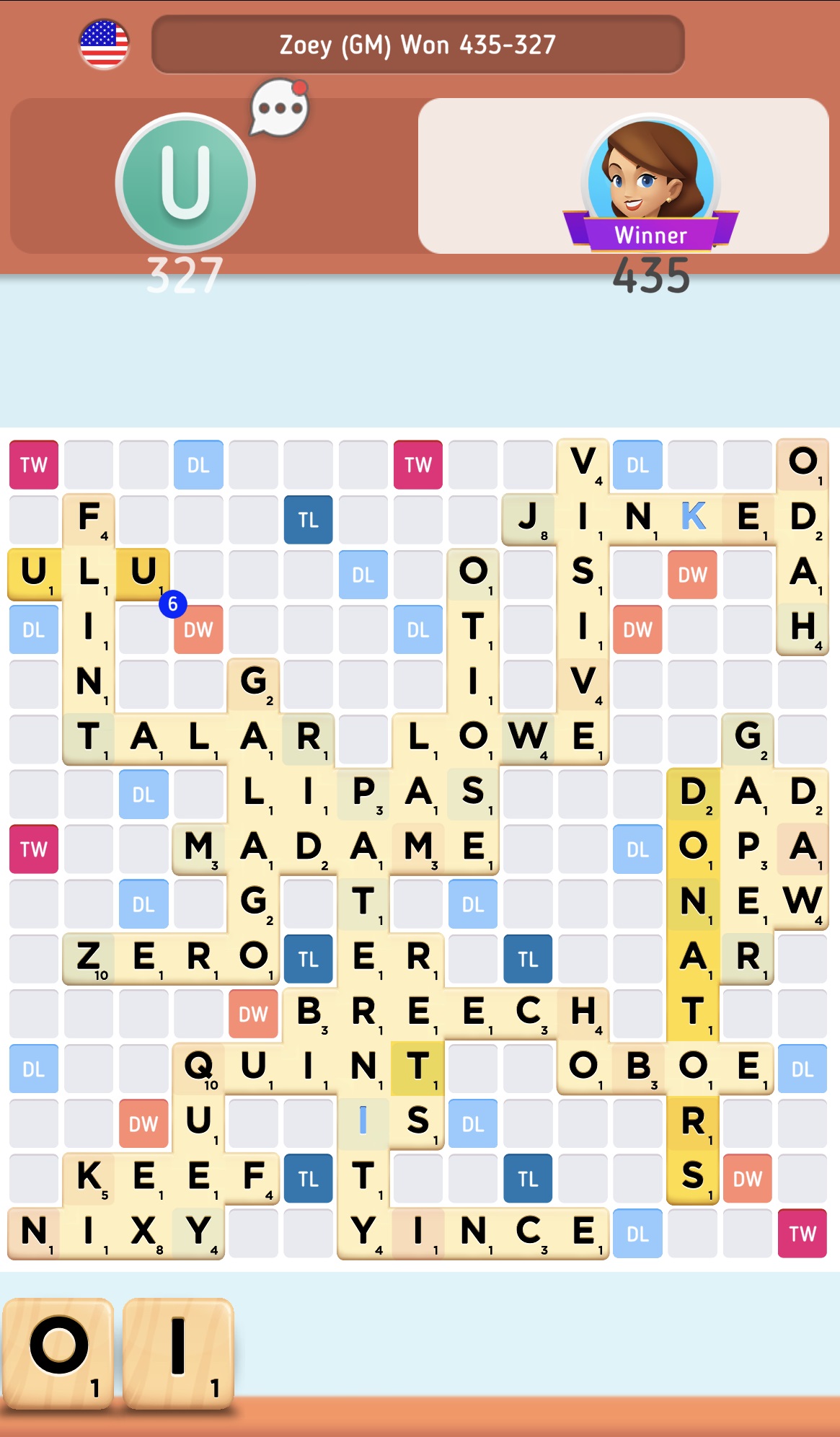
ULU all-purpose knife traditionally used by Inuit, Iñupiat, Yupik, and Aleut women.
NIXY a misaddressed or illegibly addressed piece of mail, therefore undeliverable.
FLINT hard, dark quartz that produces a spark when struck by steel
TALAR an ankle-length robe
ZERO the arithmetical symbol 0, nil
KEEF (Arabic) a state of dreamy intoxication, induced by cannabis for example
KI alternate spelling for qi: the vital energy that is held to animate the body internally and is of central importance in some Eastern systems of medical treatment (such as acupuncture) and of exercise or self-defense (such as tai chi)
EX one that formerly held a specified position or place, especially : a former spouse or former partner in an intimate relationship
MADAME a title equivalent to Mrs. for a married woman not of English-speaking nationality
QUINT one of five offspring produced in the same pregnancy
QUEY (British) cow, heifer
GALAGO a small primate (a bush baby)
LIPAS a monetary subunit of the Croatian kuna (plural)
RID to make free of
BREECH (verb) to dress in short pants (covering the hips and thighs and fitting snugly at the lower edges at or just below the knee)
BI short form of bisexual
PATERNITY the quality or state of being a father
YINCE (Scottish) once
LAM sudden or hurried flight especially from the law, as in ‘on the lam’
RETS to soak (something, such as flax or hemp) to loosen the fiber from the woody tissue
OTIOSE producing no useful result, futile
JINKED make a quick, evasive turn (past tense)
VISIVE (archaic) of, relating to, or serving for visionand
OBOE a double-reed woodwind instrument having a conical tube
HO interjection, used especially to attract attention to something specified
DONATORS donor, one that gives, donates, or presents something (plural)
OPA grandfather
AR the letter R
GAPER one that gapes, also: any of several large sluggish burrowing clams
ODAH (Turkish) a room in a harem
DAW (Scottish) dawn
Here it is, an AI*-generated poem about a fossil :
*ChatGPT Mar 23 Version, at https://chat.openai.com/
There was a ‘Regenerate’ button on the side, on which I clicked.
Instantly, a second poem was generated, line by line.
‘Was this better, worse or the same as the first one?’ inquired the AI chatbot.
‘Better’, I said.
I found a poem in one of my books that came yesterday— one that is apt for the dinosaur from German toymaker Scheich that I had brought home in my suitcase.
Fossiel
Versteende geheime skuil
in jou primordiale hart.
Hier waar die jakkals nou huil
het oerdier vir oermens getart.
Fossil
Petrified secrets hide away
in your primordial heart.
Here where the jackal howls today,
primeval beast gave caveman a start.
Original Afrikaans poem by Isaac David du Plessis, published 1965.
The rough translation into English is my own.
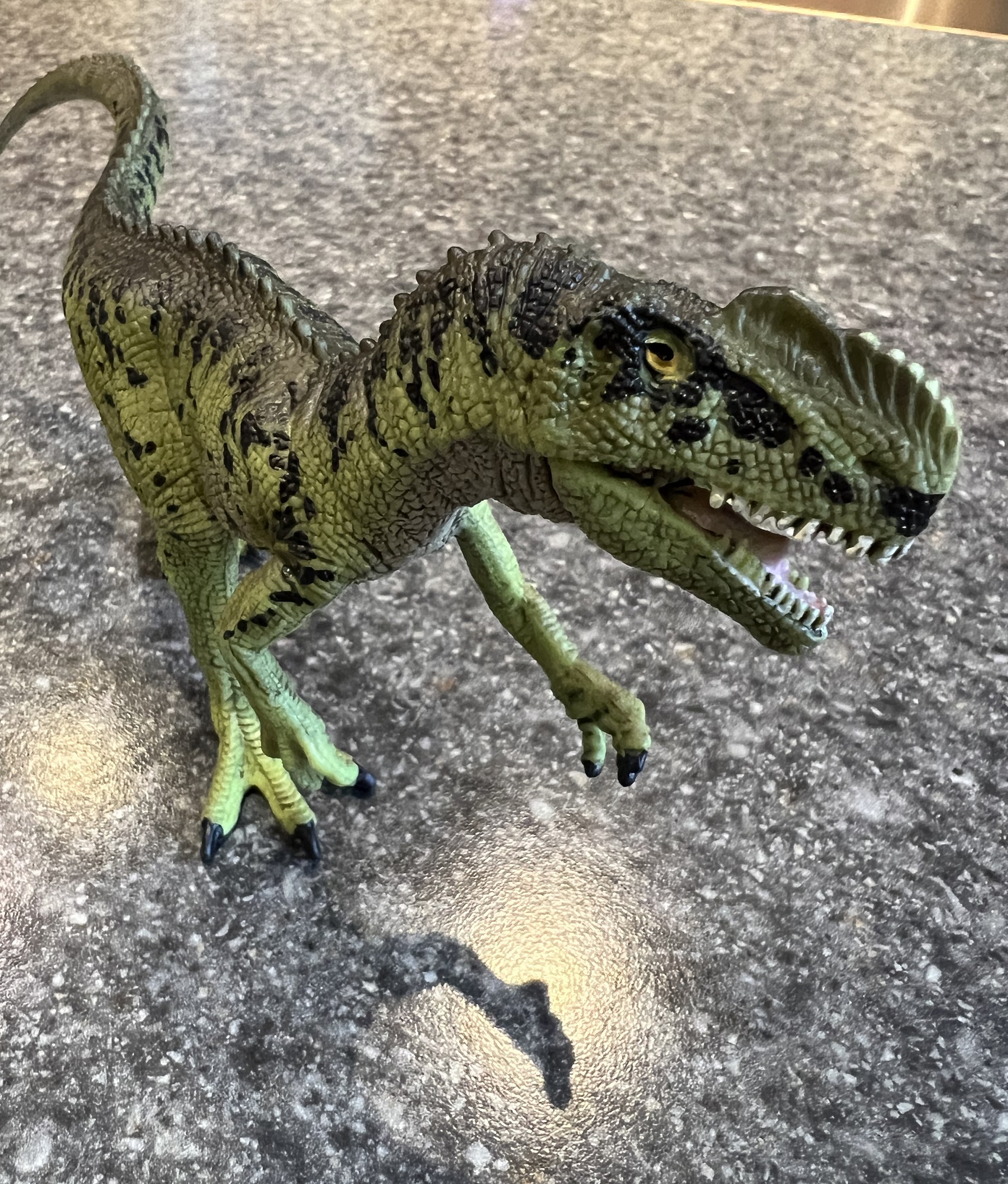
While I was in South Africa, I shipped myself a box of books to Seattle from Pretoria, and another box from Stellenbosch*.
The boxes landed on my porch today. They went from South Africa to London’s Heathrow airport, then to Cincinnati, Ohio, and then to Seattle.
*The Protea bookstore in Stellenbosch —always full of new and old Afrikaans books— was going out of business, and I could not pass up the opportunity to scoop up fifty-some books for $1 or $2 apiece.
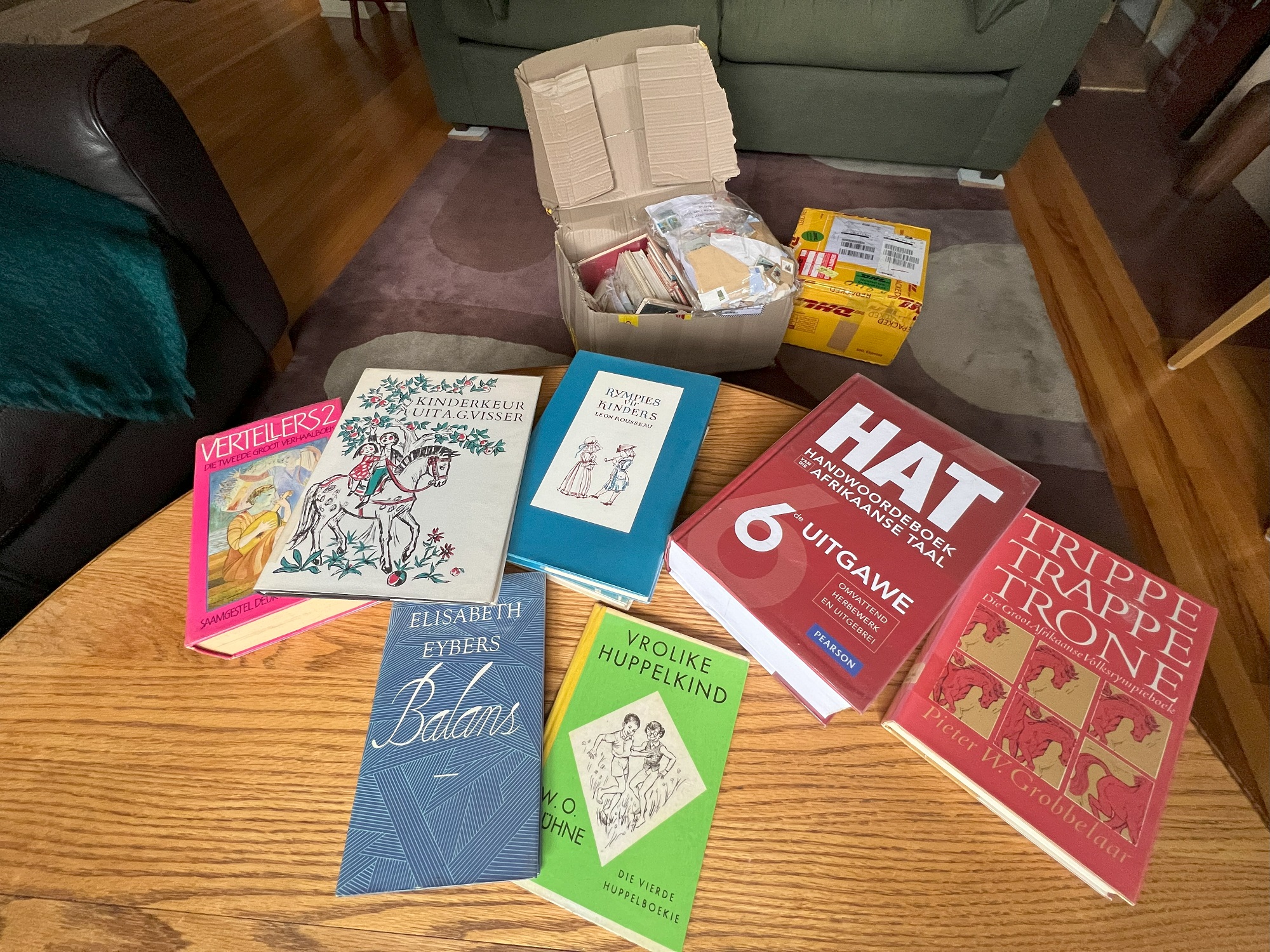
We logged another 95 °F (35 °C) for the day’s high here in Seattle.
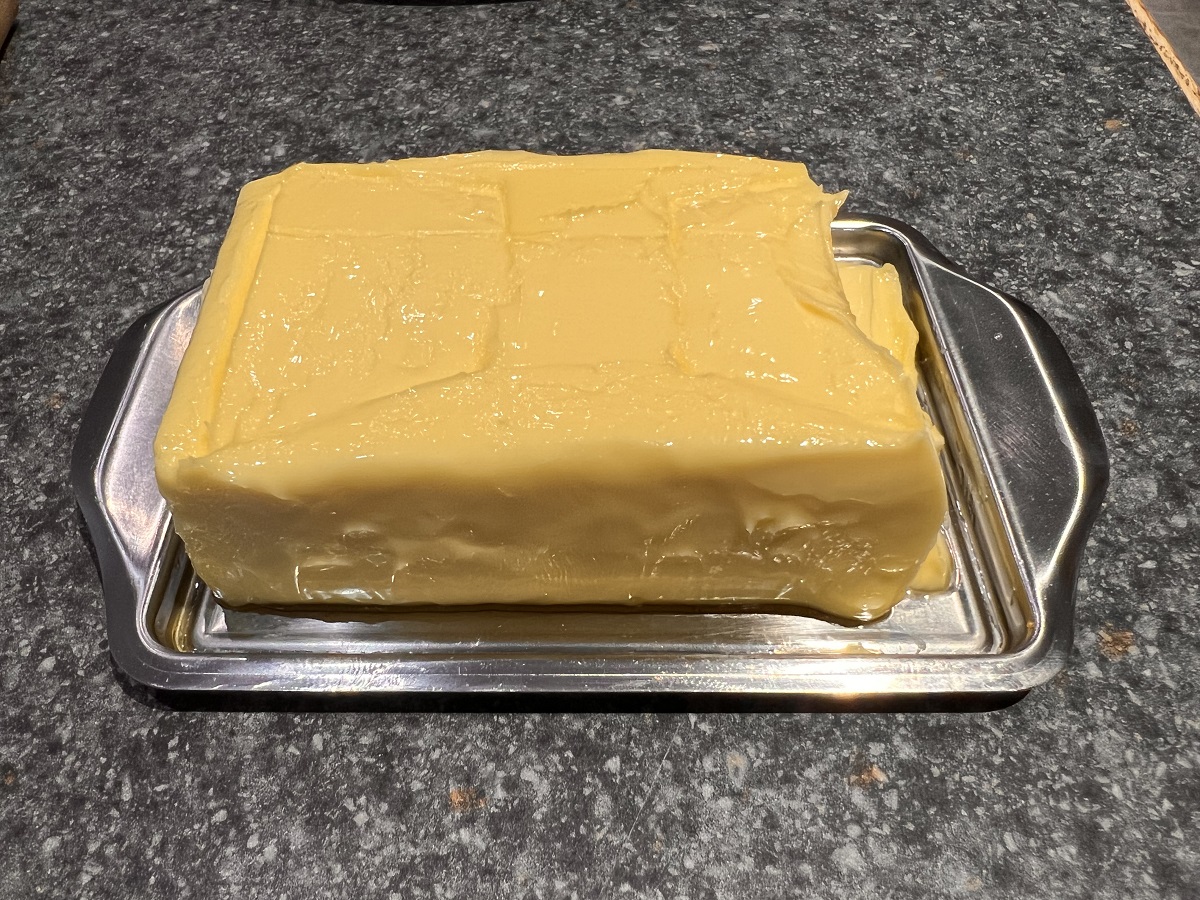
Just for fun, here are some Afrikaans expressions and idioms that use ‘butter’.
Ek het met my gat in die botter geval.
Translation: I have stumbled, with my butt stuck in the butter.
Meaning: I lucked out, in a big way.
My brood is aan altwee kante gebotter.
Translation: My bread is buttered both sides.
Meaning: I have the best of both worlds.
Dis botter tot die boom.
Translation: It is butter to the bottom.
Meaning: Said of a friendship that is thick as thieves.
Goed, beter, botter.
Translation: Good, better, butter.
Meaning: Slogan from a ’70s ad campaign for butter in South Africa. Butter is better than margarine, and is actually best of all.
I love packaging that has multiple languages on.
The fine print makes for free little language lessons that come with the product.
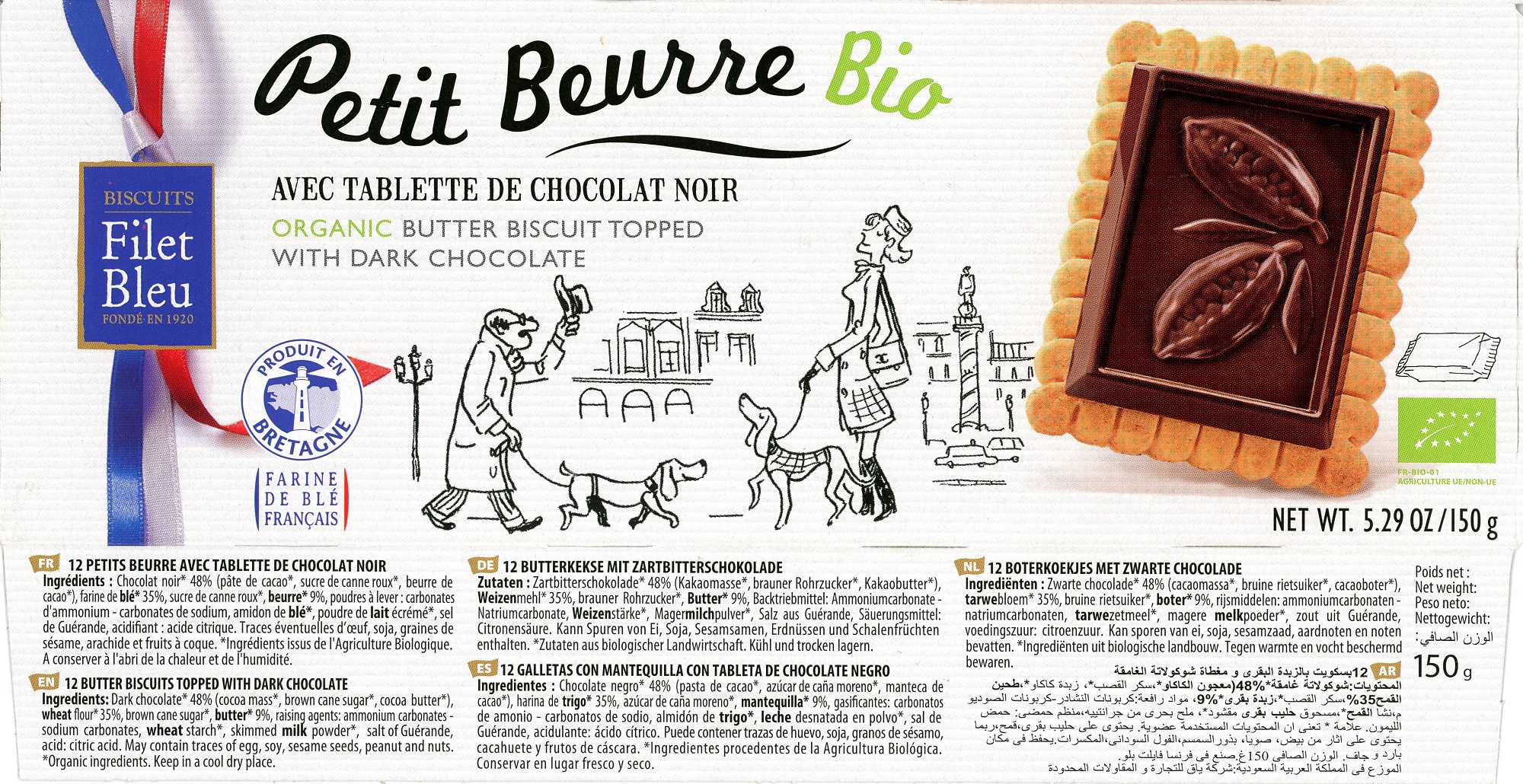
I don’t know why I took so long to check again if there is an Afrikaans version of Wordle.
There has been one since February, actually— created by South African software developer Francois Botha.
It is called Wortel.
(Eng. carrot;
originally from Dutch wortel,
from Middle Dutch wortele,
from Old Dutch *wurtala,
from Proto-Germanic *wurt– “root” + *waluz “stick”).
Here’s my first attempt. I can post the solution since it’s now past midnight in South Africa.
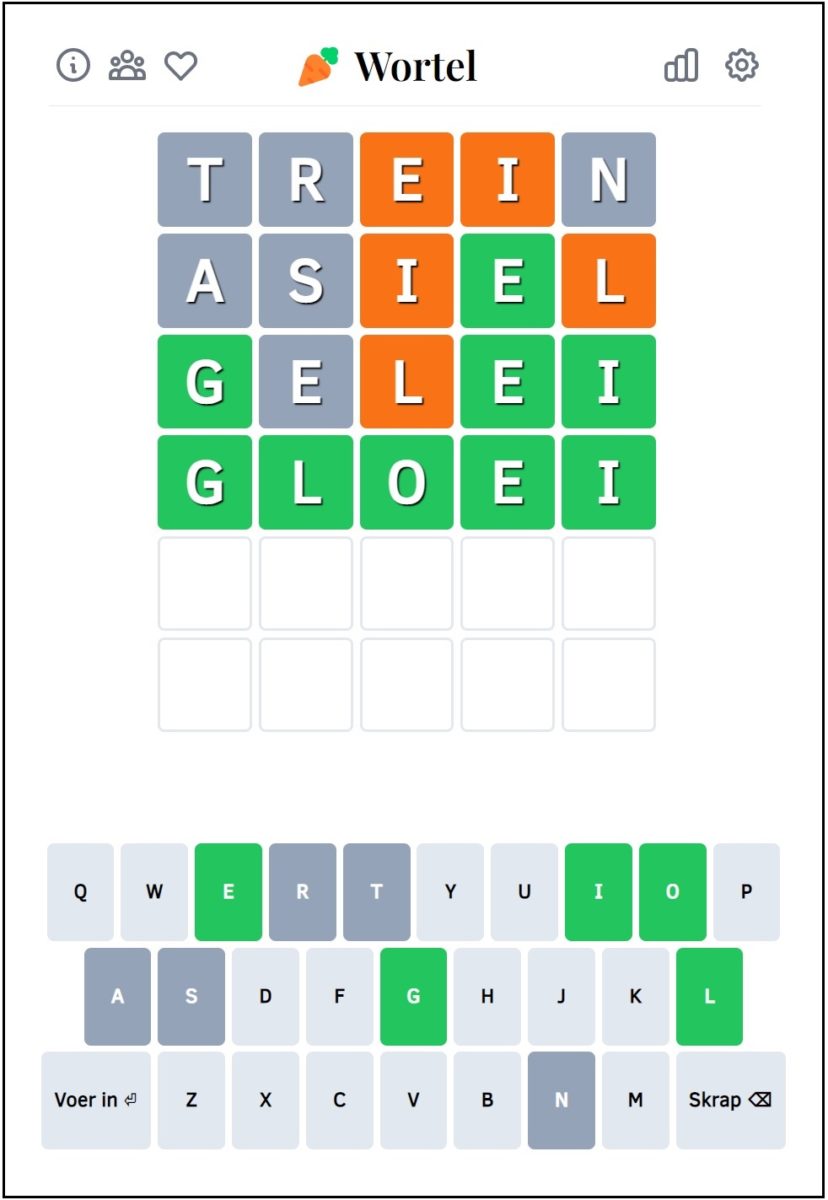
TREIN – train
ASIEL – asylum
GELEI – conduct (electricity)
GLOEI – glow
I ran into this 2018 set of Ukrainian stamps while researching the stamp with the Russian warship on (Thursday’s post).
The characters are too cute for words (but each has a letter, and a word, nonetheless).
I compiled the table below with a little help from Google Translate.
ЕНЕЛЯТКО stumped it, though : a word that has to be Ukrainian for alien or extraterrestrial.
ҐАВА was also a problem; must be raven, I thought— but another online translator indicated it is crow.
ПИРОГИ looked like hats in the tree, but turned out to be pyroghie pies, in fact.
